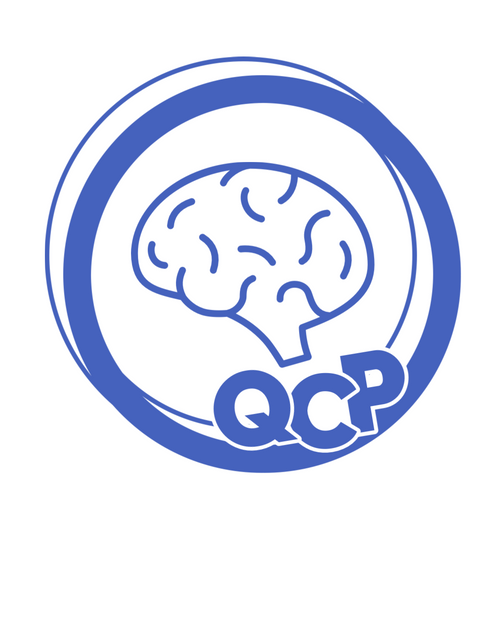For the Civic-Minded
As our third legislative session wraps up in Texas, I have spent too much time with the never-ending scroll that goes along with staying up-to-date. We've now seen that Facebook has the evidence that our social media habits aren't helpful for our mental health. I think it's working against our civic health too.
Even if we set aside what we know about misinformation and extremism online, our online news consumption is corrupting our ideas of how change works. Every update and every notification attempts to jump to the end of the story.
A reform effort failed. A bill was blocked.
A filibuster is an unmovable obstacle in the way of protecting voting rights.
Everything reads as though it's "game over." It's either a win or a loss.
We have the story's last line without any attempt to understand how it has developed or might continue to develop. I know I have a readiness to see problems like this one ever since reading Tocqueville many years ago. But Ida Tarbell is the reason I'm thinking about it today. I found a possible remedy to Tocqueville's problem in the last couple of chapters of the investigative journalist's autobiography.
The passage from Tocqueville that shapes (and haunts) my understanding of the difficulties of democracy often influences how I think about today's technology. Reflecting on individuals who imagine themselves to be self-sufficient, owing nothing to anyone and expecting nothing from anyone, Tocqueville describes a troubling habit of the democratic mind:
They are in the habit of always considering themselves in isolation, and they willingly fancy that their whole destiny is in their hands.
Tocqueville describes the consequences of this isolation—we forget our ancestors, lose sight of our descendants, and separate ourselves from our contemporaries. A democratic individual will confine himself "wholly in the solitude of his own heart."
Isolated. Disconnected. Each of us our own frayed knot. What's the remedy?
In her autobiography, All in a Day's Work, Ida Tarbell offers her understanding of our tendency to get the story wrong. She talks about our "eagerness to prove we have found the one true solution." This condition leads us to ignore the past of those solutions, so we never ask why they failed before we picked them up. We also forget:
They must sink or swim in a stream where a multitude of human experiences, prejudices, ambitions, ideals meet and clash, throw one another back, mingle, make that all-powerful current which is public opinion—the trend which swallows, digests, or rejects what we give it.
Our technology has not created new problems as much as it has thrown this isolation, forgetting, and disconnectedness into hyperdrive. Tarbell offers a phrase I'm reflecting on a lot: "Nobody begins or ends anything."
On this, she writes:
I realized early that what a man or a woman does is built on what those who have gone before have done, that its real value depends on making the matter in hand a little clearer, a little sounder for those who come after.
We ask too much of ourselves when we assess each headline as either a win or a loss. The task is to make the work a little clearer and a little more manageable for the people who will come after us.
Nobody begins or ends anything. But we can still make the burden lighter than it was when we found it.
—Shellee
—Robert F. Kennedy, U.S. Senator from New York
Let’s make it easier to start thinking together.
We designed our Questions of Civic Proportions Newsletter to help you tune your attention to the questions, ideas, and good work of a political life worth sharing. Subscribe to get a copy and let us know what you think.
We will never share your address or any other information without your permission.
For Your Reading List
The question I couldn't escape this week is all about the democratic ideas we protect and those we don't. I recently finished reading How Democracies Die by Steve Levitsky and Daniel Ziblatt, so I see trouble with our democracy in every direction (read my thoughts on the book here*). I no longer want to dig into the history of the filibuster to decide whether or not it's worth saving. I want to know:
What are we putting at risk right now by holding onto the filibuster?
Recommended reading on this question includes:
- Start with Maggie Astor's attempt to sort through the bills in front of Congress right now (New York Times: A Guide to the Twisted Thicket of Bills in Congress)
- Consider the substance of the disagreements (Vox: What Democrats are Still Fighting Over in the Budget Bill) and that a majority of Americans support bills that are being blocked like the Freedom to Vote Act (Data for Progress)
- Then turn your attention to what's stuck in the gridlock the filibuster makes possible: an ambitious legislative agenda to fight climate change (Time: If the U.S. Spends Big on Climate, the Rest of the World Might Follow) and a necessary one to protect democracy (Washington Post: A step-by-step guide to heading off the next coup attempt)
*I resisted reading How Democracies Die for a long time. One thing I appreciated about reading it recently was that it shifts the focus from breaking news to protecting democratic norms. If you need to opt-out of the latest drama from the U.S. Congress, pick up the book instead.
For Believing in Democracy
A celebration of natural beauty, and natural hair, in urban spaces: Street Artist Uses Flowering Trees as "Natural Hair" To Complete Portraits of Women and Girls. You can also follow the Brazilian Artist, Fábio Gomes Trinidade, on Instagram.
A note of appreciation for a good park bench that "allows for a sense of solitude and community at the same time, a simultaneity that's crucial to life in a great city." In The New York Times Magazine, Jonathan Lee: The Park Bench is an Endangered Species

